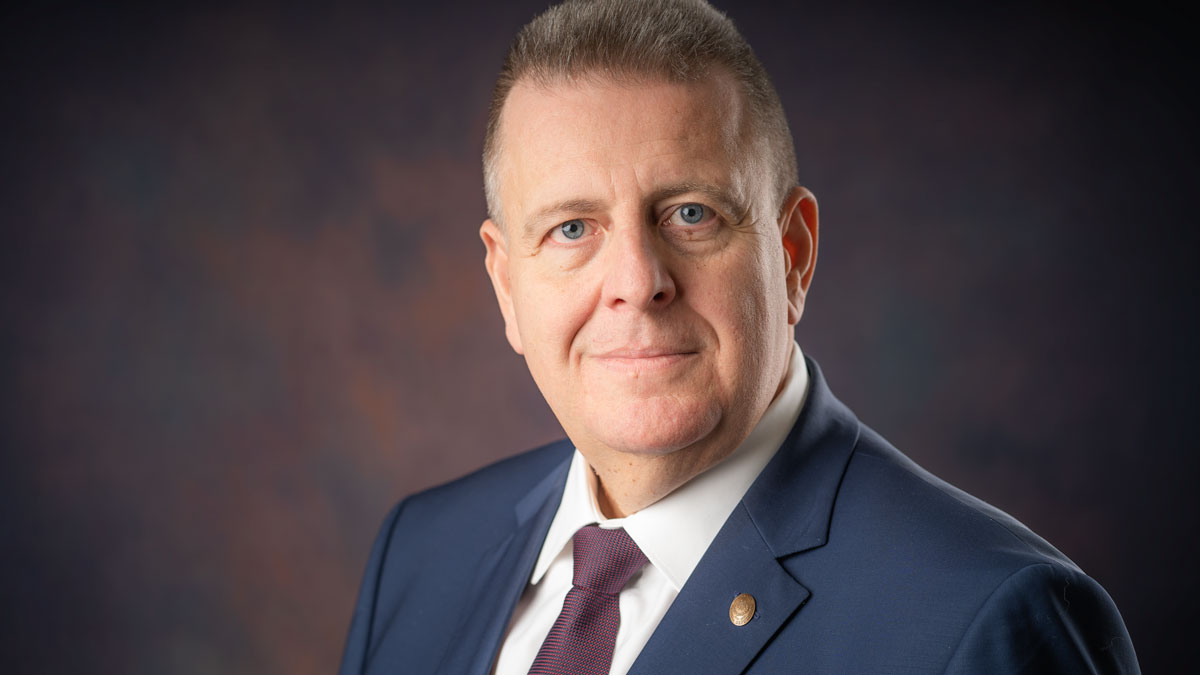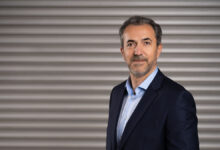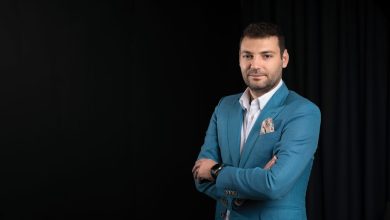Dragos Zisopol on Teaching, Politics, Culture, and Energy Transition
In a special interview, we talk to PhD Associate Professor Eng. Econ. Dragos Gabriel Zisopol on teaching, political responsibilities, education, culture, and energy transition.
PhD Associate Professor Eng. Econ. Dragos Gabriel Zisopol was born in Campina, Romania, in 1967. He is a graduate of the Faculty of Mechanical and Electrical Engineering of the Oil and Gas Institute of Ploiesti, specializing in Technological Machinery, class of 1992. In 2000 he received the title of PhD Engineer with Cum Laudae distinction in Engineering Sciences. In the same year he also graduated from the Faculty of Mechanical and Electrical Engineering at the Petroleum-Gas University (PGU) of Ploiesti, specializing in Mechanical Economic Engineering. In 2001 he founded and from 2001 to 2008 he directed the Pan-European Postgraduate College ‘Economic Litigation Management’ – MBA created by PGU in collaboration with Preston University in the USA and the Free European School of Economics in Switzerland. Since 2008 he has been a member of the Romanian Parliament and currently works in the Education Committee of the Chamber of Deputies, and since 2020 he has been the chairman of the Committee for Science and Technology of the Chamber of Deputies. In parallel with teaching and legislative activities, he also carries out scientific research activities in the field of materials science and technology, advanced production systems, technical condition monitoring, maintenance, rehabilitation and/or modernization and quality assurance of petroleum, petrochemical and petroleum product transport and storage equipment. Author/co-author of several books and articles, including innovative stands/installations/systems/appliances/technologies, and a patent, Dragos Zisopol is a member of scientific societies and professional associations, such as the Romanian General Association of Engineers (AGIR), Society of Petroleum Engineers (SPE), Romanian Welding Association (ASR), Romanian Association of Fracture Mechanics (ARMR), Romanian Association of Managers and Economic Engineers (AMIER), European Structural Integrity Society (ESIS), Romanian Association of Tribology (ATR).
Mr Zisopol, you have an impressive curriculum vitae, which includes the teaching profession associated with major responsibilities, given the transformative role for both the individual and society. How do you relate to this ‘mission’?
Dragos Zisopol: First of all, let me thank you for the invitation to be part of the group of personalities that you have asked to be interviewed for the prestigious Energy Industry Review magazine, and last but not least for your honourable comments. I sincerely hope this will be the beginning of a long and fruitful collaboration.
To answer this question, I will try to extract some ideas from the diary of memories of more than 30 years of service to university education and scientific research in the energy sector.
I share your statement “the teaching profession is associated with major responsibilities.” On the other hand, I believe that every profession has very important responsibilities. Stack of professions, stack of responsibilities. I believe that the honest life is the best teacher, and the mentor is the one from whom you can learn something good.
As a child, after reading Eminescu’s verses from the poem ‘At the Grave of Aron Pumnul’ I understood that the teacher is ‘a light’. That’s when I decided to follow the path of teaching and later I realized how hard the mission of light is. Many years later, in the Romanian Parliament, I was among the deputies who voted the day of Mihai Eminescu’s birth, January 15, as NATIONAL CULTURE DAY, a modest homage to the one who through his verses channelled my life towards light.
I relate to the teaching profession as my own life, the inspiring path to light.
Please briefly describe your most important tasks in the two committees of the Chamber of Deputies – the Education Committee and the Science and Technology Committee.
Dragos Zisopol: From 2008 until now I have held various positions in the Education Committee of the Chamber of Deputies, deputy chairman/secretary/member. The Education Committee of the Chamber of Deputies is responsible for all forms and grades of education. Since 2020 I have been the chairman of the Science and Technology Committee of the Chamber of Deputies, which is responsible for scientific activity, promotion of technological progress, research and development, innovation, and protection of intellectual property.
My main duties as chairman of the Science and Technology Committee of the Chamber of Deputies are: chairing meetings; proposing persons invited to attend meetings (representatives of civil society, employers’, professional or trade union associations, of central or local government and other legal entities, as well as individuals who can provide expertise and information required for the work); convening and coordinating the Bureau of the Committee with a view to proposing the agenda, drafting the Committee’s Rules of Organization and Operation, appointing the composition and leadership of subcommittees set up by the Committee etc.; representing the Committee in relations with the Romanian Government, the Standing Bureau and the other Committees of the Chamber of Deputies and the Senate; establishing and verifying the duties and the programme of the Committee’s parliamentary civil servants in conjunction with the specialist department of the Chamber of Deputies’ services; proposing sanctions, promotions, the awarding of annual grades, the awarding of merit pay and other rights to Committee staff; requesting the Standing Bureau of the Chamber of Deputies to provide the secretarial and specialist staff and the necessary logistics for the Committee’s work.
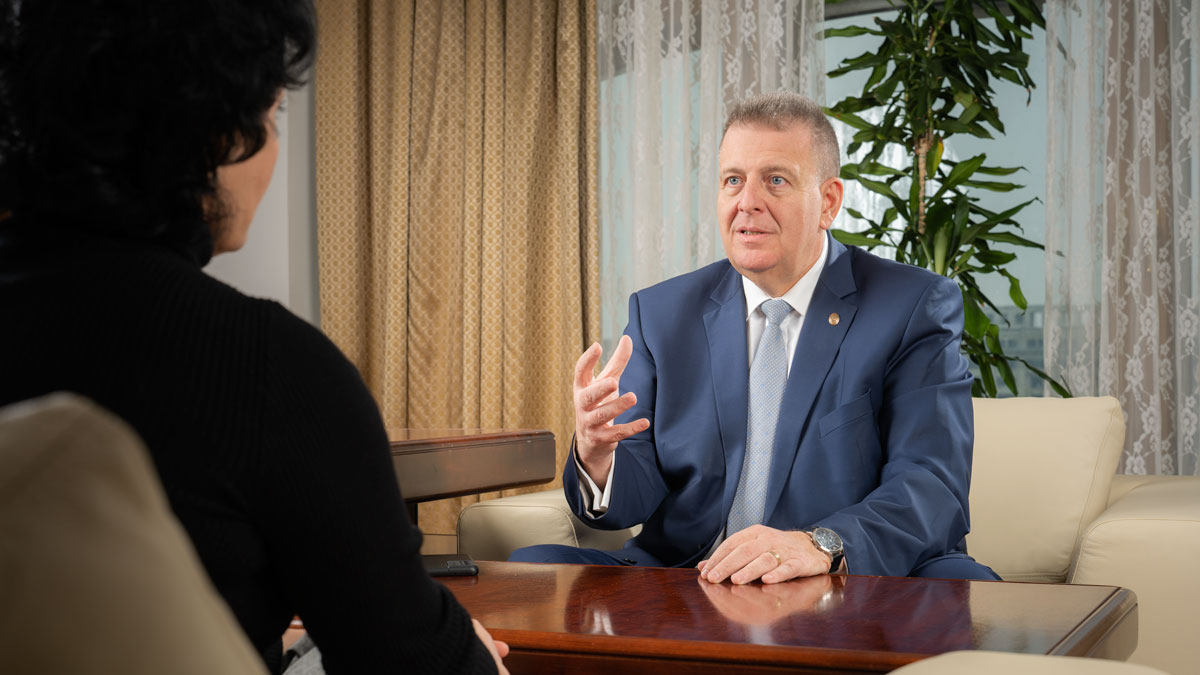
What are the most recent initiatives and actions concerning the energy sector in which you have been involved as a parliamentarian and teacher?
Dragos Zisopol: Since 1992 I have been a teacher at the Petroleum-Gas University of Ploiesti and since 2008 I have been a member of the Romanian Parliament. These were the years of my early direct contact with the energy sector.
As a graduate of the Faculty of Mechanical and Electrical Engineering of the Oil and Gas Institute of Ploiesti, specializing in Technological Machinery, class of 1992, I can say that I have been in direct contact with the Romanian energy sector since 1986 and that my entire teaching and scientific research career has been and still is at the service of this fundamental field of the economy. The generations of graduates of the Petroleum-Gas University of Ploiesti to whom I have been a professor, the dozens of scientific actions in the organization of which I have participated, and the more than 200 research papers materialized in books, scientific articles, patents, national or international contracts, posters, stands, installations, or devices, are a certainty of the added value brought to the energy sector. In recognition of this modest contribution, in 2021 I was nominated and voted associate member of the Technical Sciences Academy of Romania, Section X – Petroleum, Mining and Geonomy Engineering. From 2022 I have been a corresponding member of this prestigious institution.
As far as legislative initiatives and actions related to the energy sector in which I have been involved as a member of the Parliament are concerned, these are many, given that I have been a deputy since 2008. My teaching and research experience in the energy sector have been the basis of my parliamentary interventions in this field, whether the debates took place in the specialist committees, in the plenary of the Chamber of Deputies or at working meetings with representatives of civil society, employers’, professional or trade union associations, central or local government and other legal entities.
The main legislative proposals in the energy sector that have materialised into laws last year or this year are: Law 334/2022 on the approval of Government Emergency Ordinance No 108/2022 on the decarbonisation of the energy sector; Law 357/2022 on the approval of Government Emergency Ordinance No 119/2022 amending and supplementing Government Emergency Ordinance No 27/2022 on measures applicable to end-customers in the electricity and natural gas market for the period from 1 April 2022 to 31 March 2023, as well as amending and supplementing certain legislative acts in the energy sector; Law 5/2023 amending and supplementing Law No 220/2008 for the establishment of the system for the promotion of energy production from renewable energy sources; Law 24/2023 on the approval of Government Emergency Ordinance No 130/2022 amending and supplementing Law No. 121/2014 on energy efficiency; Law 39/2023 supplementing Article 291(3) of Law No 227/2015 on the Tax Code, as amended and supplemented, in order to reduce the VAT rate on the supply of heat pumps, photovoltaic panels and solar thermal panels from the standard rate of 19% to 5% of the tax base, with the aim of reducing electricity consumption and consumer dependence on the volatility of the market; Law 40/2023 amending and supplementing Law No 165/2016 on the safety of offshore petroleum operations.
Because your question has a double approach, legislative initiatives, and actions, from two perspectives, that of the parliamentarian and that of Professor Dragos Gabriel Zisopol, a symbiosis of different approaches, I will give you an eloquent and recent example regarding an action that I proposed, coordinated, and organized in the Chamber of Deputies together with the Technical Sciences Academy of Romania, in 2022. It’s about the project entitled ‘ROMANIAN OIL AND NATURAL GAS – HISTORY IN PICTURES’, which combines the album and the exhibition with the same title, an event initiated by the Technical Sciences Academy of Romania – Section X – Petroleum, Mining and Geonomy Engineering, and carried out under the auspices of the Science and Technology Committee of the Chamber of Deputies. It was a tribute in pictures to those who have contributed and/or contribute to the development of the oil and gas industry in Romania, an essential component of the national energy system. The album and the exhibition (consisting of 33 posters), whose authors are Gheorghe Stanescu, Mihail Minescu, Dragos Gabriel Zisopol and Bogdan Nita, contain images representative of the beginnings of oil and gas extraction and processing in Romania, the position and role of our country during the two World Wars, the current situation of this industry etc. The images, accompanied by brief explanations, represent a call to acknowledge one of the historical steps in Romania’s modernization over the last century and a half, a remembrance of the rich and tumultuous past of our country’s oil and gas industry, which played a predominant role worldwide. The event was attended by about 200 personalities of the scientific, cultural, and political life in Romania, senior officials of the Embassy of the Hellenic Republic, the Embassy of the Republic of Moldova, and the Embassy of Armenia, to which were added members of the Oil and Gas Employers’ Federation, the Romanian Academy, the Technical Sciences Academy of Romania, and the Petroleum-Gas University of Ploiesti. The album and the exhibition were subsequently presented at the event FOREN 2022 – ‘Energy transition needs regional cooperation’, held in Costinesti, on 12-15 June 2022, as well as at the Romanian International Gas Conference – 5th Edition, held at the Royal Palace in Bucharest, on 21-22 September 2022.
On the occasion of this interview, I invite all readers of the Energy Industry Review to help our efforts and propose projects and actions that contribute to the sustainable development of the energy sector.
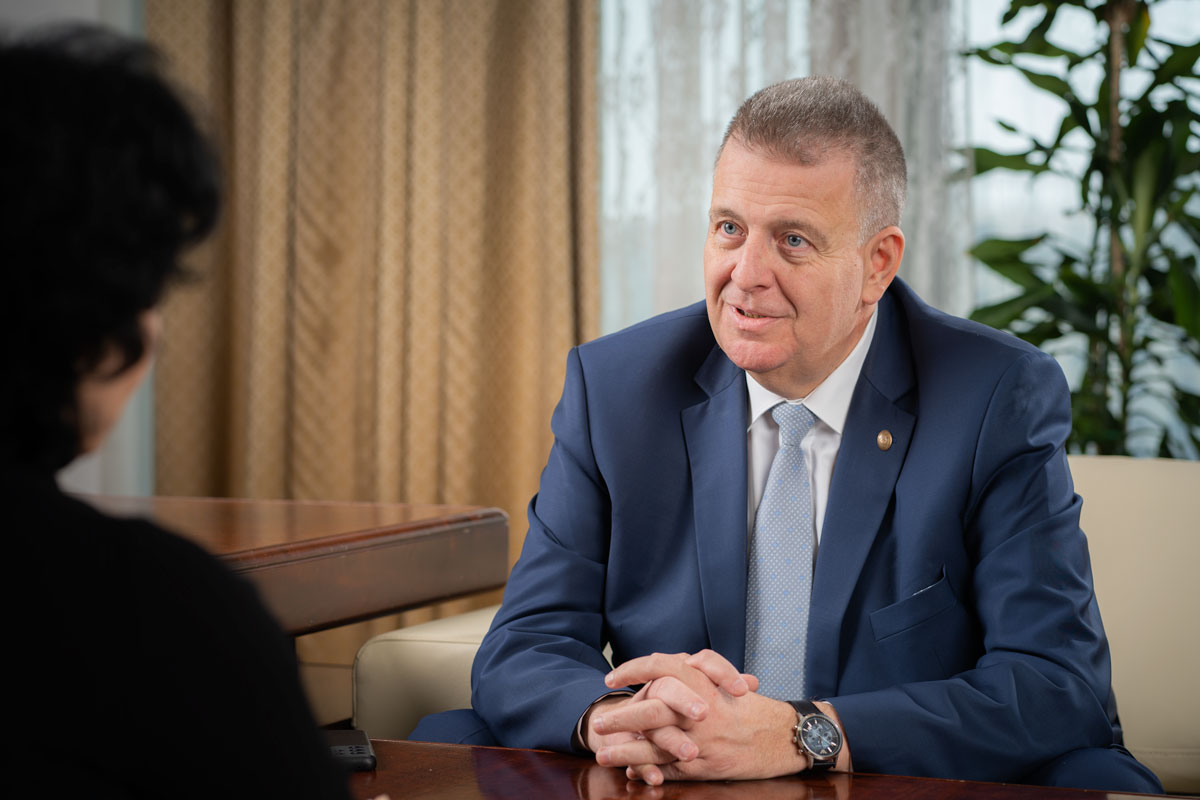
Geopolitical priorities are changing across Europe and energy is no exception. In this context, Romania’s energy transition towards low-carbon technologies and energy from renewable sources is faced with the obligation to align with new energy trends and, at the same time, with the obligation to ensure national energy needs without excessive additional costs. How do you see these challenges and what solutions do you propose?
Dragos Zisopol: Geopolitical priorities are changing around the world, not just in Europe. Progress is a form of change for the better and we cannot benefit from it without getting involved, without making our own contribution, no matter how insignificant it may seem. We live in a world where information doubles every three years, and change is an ongoing process that has generated and is generating major changes in all areas, and even more so in the energy and energy-related sectors. On the other hand, energy is in everything and is a source of change in any food chain.
Consequently, in the global context and even more so in the European context, but also in the light of what Romania has done so far at the legislative level and beyond, the energy transition of our country towards low carbon technologies and renewable energy is a certainty, supported by technological developments in the field. It is clear that we are launched into this orbit of energy transition. For the time being, the hybrid solution is the one that governs the Romanian energy sector, and it is normal to be so in this transition period. What matters is in what manner, how quickly and with what consequences we achieve our goals.
In order to win on all these counts, we need to move ahead swiftly with the legislative process in the energy sector, provide competitive funding for education and research in the sector, invest heavily in the relevant industries, produce clean and efficient energy, cut red tape and digitise the energy sectors, ensure access to energy for all domestic consumers, explore and exploit oil and gas fields in an environmentally friendly way, become a regional provider of energy security etc. All these are feasible solutions as long as we bring added value to Romania.
More and more we hear about the commitment of European and Romanian authorities to reduce CO2 pollution and increase green energy generation. Political ambitions are also supported by technological developments that seem to increasingly advance green energy generation solutions. At the same time, there are voices that question the feasibility of transitioning to green, clean energy for various reasons. Is it possible to achieve this goal or are the social, political, and environmental goals just an unattainable ambition?
Dragos Zisopol: Romania’s commitment to reduce CO2 pollution and increase green energy generation is not an easy one from a socio-economic point of view. It is not a question of political ambitions; it is a question of how we will achieve our objectives. To show you that Romania is involved in this complex mechanism, let me detail just two relatively recent legislative proposals in the energy sector, one for each of the issues you mentioned.
With regard to reducing CO2 pollution, an eloquent example at legislative level is Law 334/2022 on the approval of Government Emergency Ordinance No 108/2022 on the decarbonisation of the energy sector through the closure and conservation of power plants fired by lignite and hard coal, the closure of lignite quarries and hard coal mines, as well as measures to mitigate the social consequences of these decisions. For the coordination and implementation of the decarbonisation process, the Interministerial Coal Committee, the Advisory Committee and the Working Group for the Coordination and Monitoring of the Implementation of the Established Measures have been set up. I also mention the possibility of restarting closed energy groups, by decision of the Romanian Government and at the proposal of the Ministry of Energy, in the event of an energy crisis and in correlation with the measures contained in the emergency plans for the energy sector.
From the point of view of increasing energy generation from green sources, an example is that of Law 39/2022 supplementing Article 291(3) of Law No 227/2015 on the Tax Code, as amended and supplemented, in order to reduce the VAT rate on supplies of heat pumps, photovoltaic panels and solar thermal panels from the standard rate of 19% to 5% of the tax base, with the aim of reducing electricity consumption and consumer dependence on the volatility of the market.
There are numerous examples of such legislation. By virtue of my profession as a university professor, I can certify that Romania is registering yearly increases in energy generation from green sources (solar, wind, hydro, geothermal). There is room for improvement, and we will certainly progress, supported by advanced production systems.
In this context, I can conclude with a clear answer: Romania’s commitment to reducing CO2 pollution and increasing green energy generation is feasible.
How do you see engineering education, culture and politics coming together? What would be the common features and possible divergences?
Dragos Zisopol: There is a symbiosis between culture, engineering science education and politics that highlights the interrelationships and interactions between them. This approach is integrated and integralist, with each science contributing conceptually, in terms of thinking and specific methods of research and representation. The educated man is the key to this symbiosis. From Greek antiquity to the present day, there are certainties in this respect. The ancient Greek philosophers showed us that there are no interdisciplinary boundaries, as they had technical, philosophical, and political skills alike. They participated in the Agora meetings where they expressed their views for the welfare of the society that gave them the right to think freely in all areas. If we make an incursion in time, we see that interdisciplinarity has become the necessity of lifelong learning.
In this context, the intertwining of engineering education with politics and culture gives us the opportunity to gain an overview of life, to correctly assimilate fundamental values and to easily distinguish ends from means.
There are certainly divergences between culture, engineering education and politics. First of all, I refer to those arising from the fact that the three sciences belong to the two antagonistic spheres of thought, realism and humanism. I’m sure most of your interlocutors would blame politics. I think the blame is shared and hard to count. What is perfect in this world? And, because our readers know the answer to this question, I will continue to highlight the ‘bright side’. It was the world’s political leaders who succeeded in forging links between the two major spheres of thought, realism, and humanism, both of which are defining elements in the evolution of civilisation and culture of humanity. This is even more reason to choose our rulers from among leaders. I will give you an eloquent example in this respect, and not by chance one that brings into focus a political attitude during a world conflagration. During the Second World War, British Prime Minister Winston Churchill, the future Nobel Prize winner for literature, was presented by the Chancellor of the Exchequer with a proposal for an annual national budget which had no money allocated to culture. When the Chancellor of the Exchequer was questioned about a possible error, he cited the cause of the war (“Well, it’s war, we don’t have money for culture”). Visibly annoyed by the answer, Winston Churchill asked him, “If we don’t need culture, then what are we fighting for?”. He then took a firm decision not to cut off funding for culture.
Politics is a form of participatory democracy in which culture is the driving force behind the evolution of society created on the foundations of engineering education.
Moving from culture and politics to business, what do you consider to be the most important qualities and attributes of a successful business community?
Dragos Zisopol: Community is a notion that implies unity, “common interests, beliefs or norms of life”. Unity, which is often associated with power and ultimately success, is the core of a community and successful people are its essence. People who relate correctly to the contemporary world, who understand and apply the balance between their own aspirations and the needs of their community, are the key to success in any field. Successful people are a bond of trust and respect, they share common values and interests and can put them into practice. These principles are generally valid for all types of communities.
In this context, I believe that the attributes and qualities of a successful business community are grounded in and often merge with the traits of successful people: responsiveness, knowledge and anticipation, flexibility, inventiveness, creativity, maximum efficiency, risk-taking, speed of decision-making etc.
High-performing organizational structure, existence of community-wide Leadership, compliance with code of ethics and professional conduct, development of organizational culture, continuous training and professional development of community members, awareness and inclusiveness, collective identity, application of strategies and tactics appropriate to customer demand – linked to market supply are some of the attributes of a high-performing business community.
Based on the fairness, morality and proactive approach of its members, the successful business community is one that never abdicates its principles.
In conclusion, what recommendations would you make, based on the experience you have gained during your career, to a young person starting out?
Dragos Zisopol: I wonder if I am in a position to make recommendations. It might seem like a weakness, but I hope it’s a sign of balance, even if unstable. Under the sign of the question, I am asking myself, I will try to answer you and myself.
Career is part of the modern man’s concerns. Interested in this issue, I have read and continue to read books on career management, judicious organisation of time, methods of stimulating creativity, human resources development strategies, I have participated and continue to participate in debates etc. Consequently, I can say with certainty that all of us, in one form or another, from a certain age are concerned about our careers. I think that in order to be able to recommend you must be recommended by life’s achievements, you must have moved from the category those who understood to the category those who are active who have the knowledge, achievements and willingness to share the purpose in life.
Personally, I believe that we are always put in the situation of a new ‘beginning of the road’, in our lives encountering countless decision intersections. Consequently, the recommendations, if we have the experience and willingness to make them to a person, must be related to their character, age, skills, inclinations, and education, to the environment in which they work, to the dream they have when they are at a decision intersection and, above all, to the work they are willing to put into what they want. The compatibility between the adviser and the advised is, I believe, a fundamental criterion for the materialisation of a recommendation.
For a young person, the horizon is different, the road of life seems endless and the decision intersections countless. However, the truth is unique. The straight road is the shortest and gives the best results, but it is also the hardest. This is a reality that requires a serious and continuous preparation of each of us, at every moment of our lives. The important thing is to add value to society through a synergy of our values, whether we are among those who recommend or those who receive recommendations.
The human tendency is to position ourselves more and more among advisers, and I think this is not the solution, as long as we cannot discuss compatibility between subjects. The best advice we can get is from those who know us well, from parents, family members, teachers and, most importantly, from our own conscience in relation to positive role models.
I don’t believe in a generally valid recipe in terms of what to recommend to a young person starting out, but I’m sure that positive role models, education and hard work are the key to the straight path I recommend to everyone.


